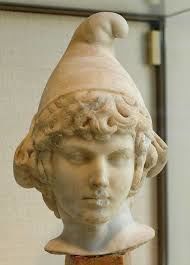
It’s the 23rd of December: it’s Christmas Eve eve. Children all over the world are lining up in shopping malls and on Main Streets, waiting for a chance to sit in Saint Nicholas’ (or Sinterklaas’, or Santa Claus’) lap. They’re promising they haven’t been naughty, just nice. And they’re rattling off lists of the presents they want.
We have a habit of asking for favors from old men at the end of the year. It goes back to around AD (Anno Domini) 1. In those days, we were humbled by the powers of Roman Emperors, the Patres Patriae, Fathers of their Country who were worshipped as gods. And at around the same time, we first knelt and sung to our Father in Heaven, and serenaded his Divine Son.
A little more than 2000 years ago, Jesus was born in Bethlehem. “He will be great and will be called the Son of the Most High; and the Lord God will give to him the throne of his father David.” So his mother was told. Jesus was descended from Abraham through David, who was Israel’s great king; he was brought gold, frankincense and myrrh from the east by 3 magi, or wise men; he was tried by the Judaean governor, Pontius Pilate, who asked him, “Are you the King of the Jews," though he made no answer to that question; and afterwards he sat at the right hand of God, and judged.
The word κύριος, Lord or Master, appears in 771 times in the New Testament, in 665 different verses—237 verses in the gospels, 102 verses in Acts, 305 verses in the letters, and 21 verses in Revelation. That Lord is deferred to (“You shall worship the Lord your God, and him only shall you serve”); and prayed to (“Lord, help me,” “Lord, have mercy,” “Lord, let me receive my sight”); and praised (“Hosanna! Blessed is he who comes in the name of the Lord!”); and loved (“You shall love the Lord your God with all your heart, and with all your soul, and with all your mind”).
In the first years that Jesus was worshipped in Bethlehem, there was another Lord in Rome. People made sacrifices to Julius Caesar’s successor, the first Roman emperor, Augustus, who occasionally dressed up like the sun god; his friends called him divinum adulescentem, a divine teenager, or gushed mihi semper deus, that he’d always be a god to them. Obedient subjects were rewarded. Disobedient subjects were not. Nero, who was the last member of Julius Caesar’s dynasty, and Augustus’ great-great-grandson, had senators put to death for not sacrificing to his caelestis vox, or divine voice. And Christians were crucified or beheaded, or worse.
But like other emperors, he let people get the kinks out of their knees. Nero was a fan of the Saturnalia. Starting on the 17th of December, schools and businesses closed for a few days, and people celebrated Saturn’s Golden Age. Wine flowed, people caroused, presents were exchanged. All of Rome had a party. And status was erased. Masters waited on their servants; Lords were ignored. The subjected rose up. And everybody put on a pileus—the felt cap that freed slaves wore.
I love holidays at the winter solstice. I love making the deadest, darkest time of the year light and green. And I love playing Santa. But I too am a Saturnalia fan.
With an almost irresistible itch to put on my pileus.
ACCOMPANIMENT:


